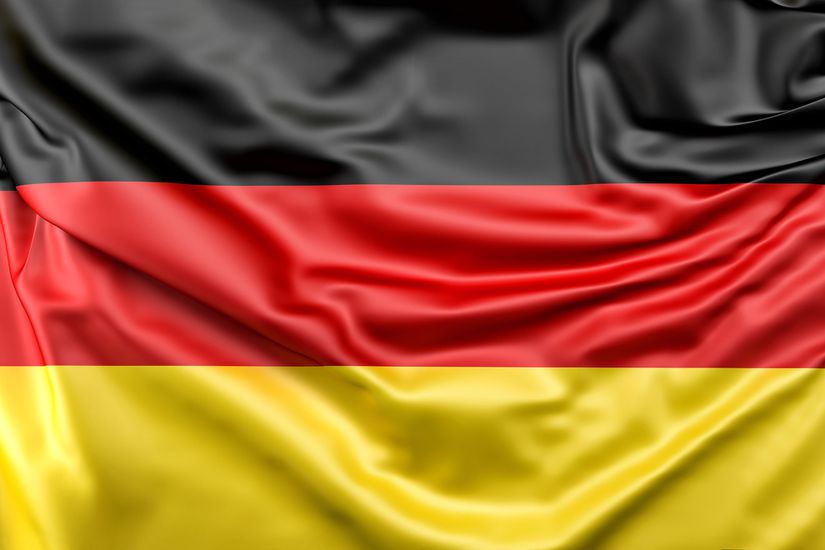1. Volkswagen Group
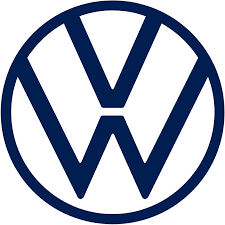
Starting off our list, Volkswagen Group (VW) is the largest company in Germany by revenue—a household name across continents, but few realize just how vast the automotive empire truly is. Under the VW umbrella are elite brands such as Audi, Porsche, Skoda, SEAT, Bentley, Lamborghini, and the rising EV-focused marque, Cupra. The group’s reach across luxury, economy, and electric mobility segments places it among the top global players in the auto industry.
Headquartered in Wolfsburg, VW has committed itself to a bold electrification strategy, dubbed “Accelerate Forward – Road to 6.5”, which aims to make one in every five vehicles sold electric by 2025. The company is rapidly expanding battery cell production across Europe, working on vertical integration to compete with tech giants entering the mobility space. This comes as a follow-up to its multibillion-euro EV investments and six planned gigafactories.
Yet, despite VW's clear forward vision, the company has faced economic headwinds—from the ongoing impact of global supply chain shortages to its phased exit from the Chinese joint venture market in favor of localized platforms. It has also worked to restore its public image post-2015's “Dieselgate,” with major investments in sustainability and transparency.
FY2024 Revenue in USD billions – $349.41Bilion
2. Deutsche Telekom
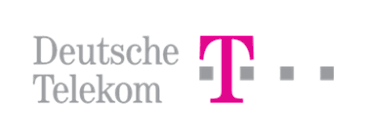
Holding the title of Europe’s largest telecom provider, Deutsche Telekom has expanded from a German network operator to a global powerhouse. Most people worldwide recognize its brand through T-Mobile, which dominates markets in Germany and the U.S.—the latter now being the company's biggest revenue source following its game-changing merger with Sprint in 2020.
Headquartered in Bonn, the company’s strength lies in its dual-market dominance, particularly the explosive growth of T-Mobile US, which has surpassed rivals in 5G infrastructure deployment and customer acquisition. At the same time, the German division is pushing hard on fiber-to-the-home (FTTH) services, closing the digital divide across rural regions.
Facing the demands of massive infrastructure expansion, spectrum investments, and cybersecurity concerns, Deutsche Telekom has doubled down on digital transformation. Its goal: to become the leading digital telco. Sustainability is also central to its vision, with bold climate neutrality targets set for 2025 (Germany) and 2040 (globally).
FY2024 Revenue in USD billions – $177.75 Bilion
3. Mercedes-Benz Group
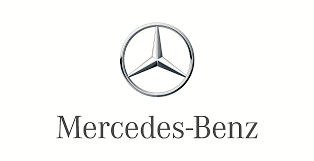
Mercedes-Benz, one of the most iconic luxury automotive brands in the world, stands at the intersection of heritage and innovation. Known for its refined engineering, cutting-edge safety features, and timeless design, the company has long been a symbol of German automotive excellence. But Mercedes-Benz today is more than just prestige—it's a bold, forward-looking group that has repositioned itself for a new era of mobility.
After spinning off its truck division (now Daimler Truck AG) in 2021, Mercedes-Benz sharpened its focus exclusively on passenger vehicles and vans. This strategic pivot allowed the company to dive head-first into electrification. Its EQ series—featuring models like the EQS, EQE, and the all-new EQG—represents the company’s flagship push into the EV market. With ambitious plans to go all-electric “where market conditions allow” by the end of the decade, the automaker is investing billions in EV platforms and battery plants across Europe.
At the same time, the Stuttgart-based group has doubled down on digital innovation, building software-defined vehicles and launching partnerships with tech firms to develop next-gen infotainment and autonomous driving systems. Still, Mercedes-Benz faces stiff competition from Tesla, BMW, and Chinese EV brands, while juggling supply chain disruptions and geopolitical tensions in key export markets.
Even with these challenges, the luxury segment’s resilience continues to be Mercedes-Benz’s fortress, with strong sales in China, the U.S., and Europe bolstering its financial strength.
FY2024 Revenue in USD billions – $156.70 Bilion
4. BMW Group
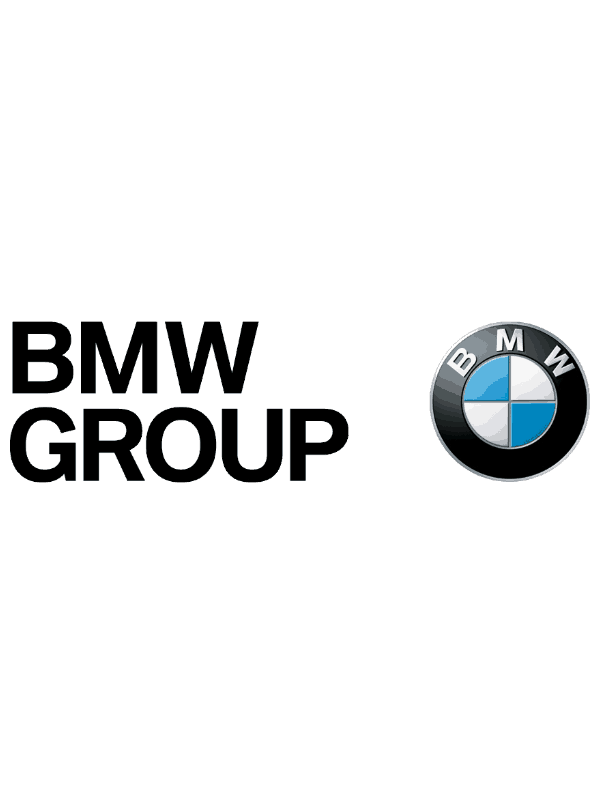
BMW Group—short for Bayerische Motoren Werke—has long embodied the philosophy of “Sheer Driving Pleasure.” Known globally for its performance-oriented luxury vehicles, the company has built a portfolio that includes not only BMW, but also MINI and Rolls-Royce, giving it a unique footprint across premium and ultra-luxury segments.
Headquartered in Munich, BMW has successfully managed to maintain its brand prestige while transitioning to a new era of sustainable mobility. The company's “Neue Klasse” platform, set to launch its first models in 2025, is being hailed as a transformative step toward fully electric vehicles. BMW is not only investing in battery cell technology and vertical integration, but also innovating in circular economy principles—recycling materials, reducing emissions, and redesigning production lines for carbon neutrality.
Unlike some competitors, BMW has taken a more cautious but strategic approach to electrification. Rather than declaring an imminent end to combustion engines, it has pursued powertrain flexibility, offering EVs, hybrids, and high-efficiency ICE models side-by-side. This flexibility has been key to retaining market share in regions with differing regulatory and infrastructure maturity.
BMW also boasts one of the most profitable financial arms in the auto industry—BMW Financial Services—which continues to provide a steady income stream and customer loyalty. Nevertheless, the company faces fierce competition in the EV space, rising material costs, and geopolitical uncertainty, particularly in China where competition from local EV brands is intensifying.
FY2024 Revenue in USD billions – $153.23 Bilion
5. Allianz SE
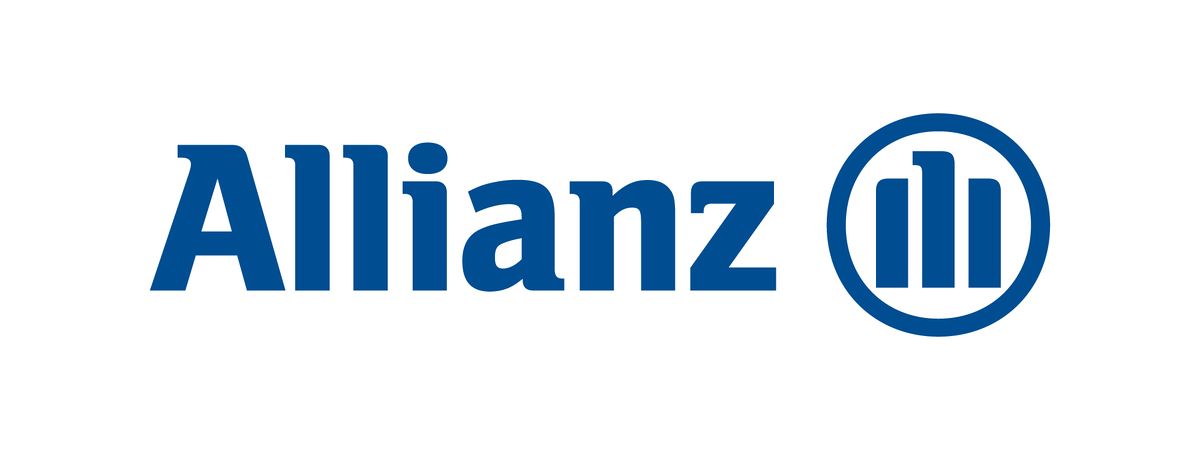
As one of the world’s largest financial services providers, Allianz SE has long stood as a pillar of stability in the volatile world of global finance and insurance. Headquartered in Munich, this German multinational operates in more than 70 countries, offering a wide range of services that include property and casualty insurance, life and health coverage, asset management, and corporate risk advisory.
Allianz is particularly notable for its dual strength in insurance and investment management. Its subsidiaries—Allianz Global Investors and PIMCO—manage over $2.5 trillion in assets, making it one of the most influential institutional investors in the world. The firm has also played a critical role in the green finance transition, integrating ESG standards into both underwriting and investment operations.
In recent years, Allianz has doubled down on digitization, using artificial intelligence and data analytics to enhance customer experience, streamline claims processing, and detect fraud. At the same time, it's been aggressively expanding its footprint in Asia and North America, including a deepened presence in China’s burgeoning insurance market.
Despite navigating global economic uncertainty, rising interest rates, and natural disaster claims, Allianz remains financially robust. It has demonstrated strong capital resilience and regularly returns value to shareholders through dividends and share buybacks. Regulatory fines in the U.S. linked to its Structured Alpha Funds in 2022 dealt a reputational blow, but the firm has since strengthened its compliance infrastructure.
FY2024 Revenue in USD billions – $140.7 Bilion
6. DHL Group (Deutsche Post)

DHL Group, formerly known as Deutsche Post DHL, is the undisputed giant of global logistics—a company that touches virtually every corner of the world. With a name synonymous with international shipping and parcel delivery, DHL has become one of Germany’s most globally recognized brands. Operating across over 220 countries and territories, the company serves as a critical artery in the global economy.
Headquartered in Bonn, DHL Group is structured into five key divisions: Express, Global Forwarding, Freight, Supply Chain, and eCommerce Solutions. Its express courier services, in particular, have become a market leader in time-definite international deliveries, especially across Europe, Asia, and the Americas. During the COVID-19 pandemic, DHL's infrastructure proved indispensable in transporting medical supplies, vaccines, and essential goods worldwide.
The company has embraced digitization and sustainability as cornerstones of its growth strategy. It has committed to investing over €7 billion in green logistics through 2030, with the goal of achieving net-zero emissions by 2050. This includes electric delivery fleets, alternative fuels in air and sea freight, and energy-efficient warehouses.
Despite facing cost pressures from inflation, wage hikes, and global trade disruptions, DHL continues to benefit from the long-term surge in e-commerce and international trade. Its diversified portfolio across express delivery, freight forwarding, and supply chain management allows it to remain resilient even in turbulent markets.
FY2024 Revenue in USD billions – $90.62 Bilion
7. E.ON
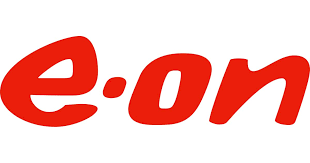
E.ON stands as one of Europe’s largest energy networks and infrastructure companies, playing a crucial role in the continent’s transition toward a more sustainable and decentralized energy future. Based in Essen, Germany, E.ON has shifted its focus in recent years from power generation to energy distribution, customer solutions, and smart grid innovation.
After divesting its conventional power generation assets to Uniper (which itself was later partially nationalized during the energy crisis), E.ON repositioned itself as a pure-play energy infrastructure provider. Today, it manages one of the largest energy distribution networks in Europe—supplying power and gas to over 50 million customers across Germany, the UK, Sweden, and several Eastern European countries.
E.ON is at the forefront of integrating renewable energy into urban and industrial networks. Its business model emphasizes decarbonization, decentralization, and digitalization, with heavy investments in smart meters, virtual power plants, and AI-driven grid optimization. It also supports cities and industries in achieving their climate goals through energy efficiency projects and district heating systems.
Like many energy firms, E.ON has had to navigate volatile wholesale prices, regulatory pressure, and the aftermath of Europe’s energy crisis following the war in Ukraine. Still, its relatively low-risk, regulated infrastructure assets provide stability and predictable cash flows—an advantage in uncertain economic times.
With firm ESG commitments and a clear roadmap toward carbon neutrality by 2040, E.ON is positioning itself as a backbone of Europe’s green energy transition.
8. Siemens AG
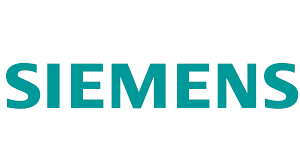
A cornerstone of German industrial might, Siemens AG is a global technology powerhouse operating at the intersection of automation, electrification, and digitalization. Headquartered in Munich, Siemens has evolved far beyond its roots in electrical engineering to become one of the world's leading providers of industrial software, smart infrastructure, medical technology, and sustainable mobility solutions.
The company’s business spans several high-growth sectors. Its Digital Industries division is a leader in industrial automation and manufacturing software, powering the future of smart factories. Smart Infrastructure enables intelligent building systems and power grids, while Siemens Mobility delivers cutting-edge rail solutions—including high-speed trains and railway automation systems. Through Siemens Healthineers, the group also maintains a major presence in the global medical imaging and diagnostics market.
In recent years, Siemens has undergone significant transformation, spinning off non-core operations such as Siemens Energy and refocusing on digital transformation and high-tech solutions. Its flagship platform, Siemens Xcelerator, provides a scalable ecosystem of software, hardware, and digital services designed to accelerate digitalization for enterprises worldwide.
Despite macroeconomic headwinds and rising input costs, Siemens has managed to maintain strong margins through innovation and strategic partnerships. Its emphasis on sustainability, including plans to become carbon neutral by 2030, aligns with the growing global demand for clean and efficient infrastructure.
Siemens’ blend of industrial heritage and digital foresight ensures its place at the forefront of Europe’s technological renaissance.
FY2024 Revenue in USD billions – $83.29 Bilion
9. Uniper SE
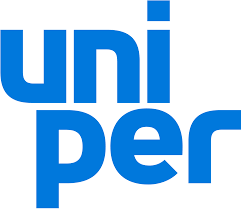
Once a subsidiary of E.ON, Uniper has become a standalone energy giant that has weathered significant challenges while playing a pivotal role in Europe’s energy supply. Headquartered in Düsseldorf, Germany, Uniper operates across the full energy value chain, from power generation and natural gas supply to energy trading and storage.
While it began as a traditional utility focused on coal, natural gas, and hydroelectric power generation, Uniper has dramatically shifted toward a more sustainable energy future. In recent years, the company has accelerated its transition towards low-carbon energy sources, including renewable energy projects, hydrogen production, and carbon capture technology. With the energy crisis exacerbated by the war in Ukraine, Uniper found itself at the center of Europe’s scramble for energy security, as it was a key supplier of Russian natural gas to the continent. This dependence led to financial instability and a partial nationalization by the German government in late 2022, ensuring the company’s continued operation amidst skyrocketing energy prices.
Uniper’s Clean Energy Transition Strategy includes bold investments in green hydrogen infrastructure and offshore wind farms, alongside efforts to phase out coal in favor of cleaner fuels. The company is positioning itself as a key player in Europe’s energy transition, working to become more agile and innovative in response to market shifts and the pressing need for decarbonization.
Despite short-term challenges, Uniper is poised to be a key enabler of Europe’s energy security, all while pursuing its long-term sustainability goals.
FY2024 Revenue in USD billions – $74.86 Bilion
10. BASF SE
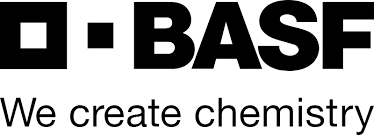
As the world’s largest chemical producer, BASF has been a key player in shaping the global chemical industry for over 150 years. Headquartered in Ludwigshafen, Germany, BASF operates in a diverse range of sectors, from automotive and agriculture to energy, electronics, and personal care. Its products touch nearly every aspect of modern life, making it an indispensable part of the global supply chain.
BASF’s portfolio includes chemicals, performance products, industrial solutions, and agricultural solutions. The company’s Catalysts division leads the charge in automotive emission control and industrial catalyst technologies, while Nutrition & Care produces high-performance ingredients for the food, beverage, and cosmetics industries. Additionally, Agricultural Solutions is among the world’s top providers of crop protection and seeds, addressing food security challenges in an ever-growing global population.
In recent years, BASF has emphasized sustainability and the circular economy as key drivers of growth. It has set ambitious targets for carbon neutrality by 2050, with major investments in renewable energy, energy-efficient processes, and sustainable raw materials. The company’s new BASF Future Business division focuses on breakthrough innovations, including renewable energy storage solutions, bio-based materials, and sustainable plastics recycling.
However, BASF faces significant headwinds—rising raw material costs, supply chain disruptions, and regulatory pressures in Europe. It also has to contend with increasing competition from both established chemical companies and emerging market players in Asia. Yet, its diversified business model, global footprint, and deep-rooted technological expertise allow BASF to maintain a competitive edge in a rapidly changing industrial landscape.
FY2024 Revenue in USD billions – $70.30 Bilion
11. Daimler Truck
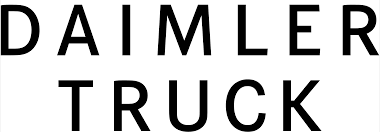
Spun off from Daimler AG in 2021, Daimler Truck is now a standalone global leader in the design, manufacturing, and distribution of heavy-duty trucks, buses, and other commercial vehicles. Headquartered in Stuttgart, Germany, Daimler Truck’s portfolio includes well-known brands such as Mercedes-Benz Trucks, Freightliner, and Western Star.
As one of the largest commercial vehicle manufacturers in the world, Daimler Truck is heavily invested in the electrification of transport. Its eActros and eEconic electric truck lines are already seeing production, and the company aims to have a carbon-neutral fleet by 2039. The company has also joined forces with industry partners to develop hydrogen-powered heavy-duty trucks as part of its future-proof strategy.
Despite the challenges posed by supply chain issues, rising material costs, and volatile demand in the trucking industry, Daimler Truck is well-positioned in the global market, particularly in North America, where its Freightliner brand dominates the commercial vehicle sector. The company's ongoing digitalization efforts, including fleet management software and connected vehicle technologies, ensure it remains competitive as the logistics and transport industries evolve.
FY2024 Revenue in USD billions – $58.21 Bilion
12. Traton
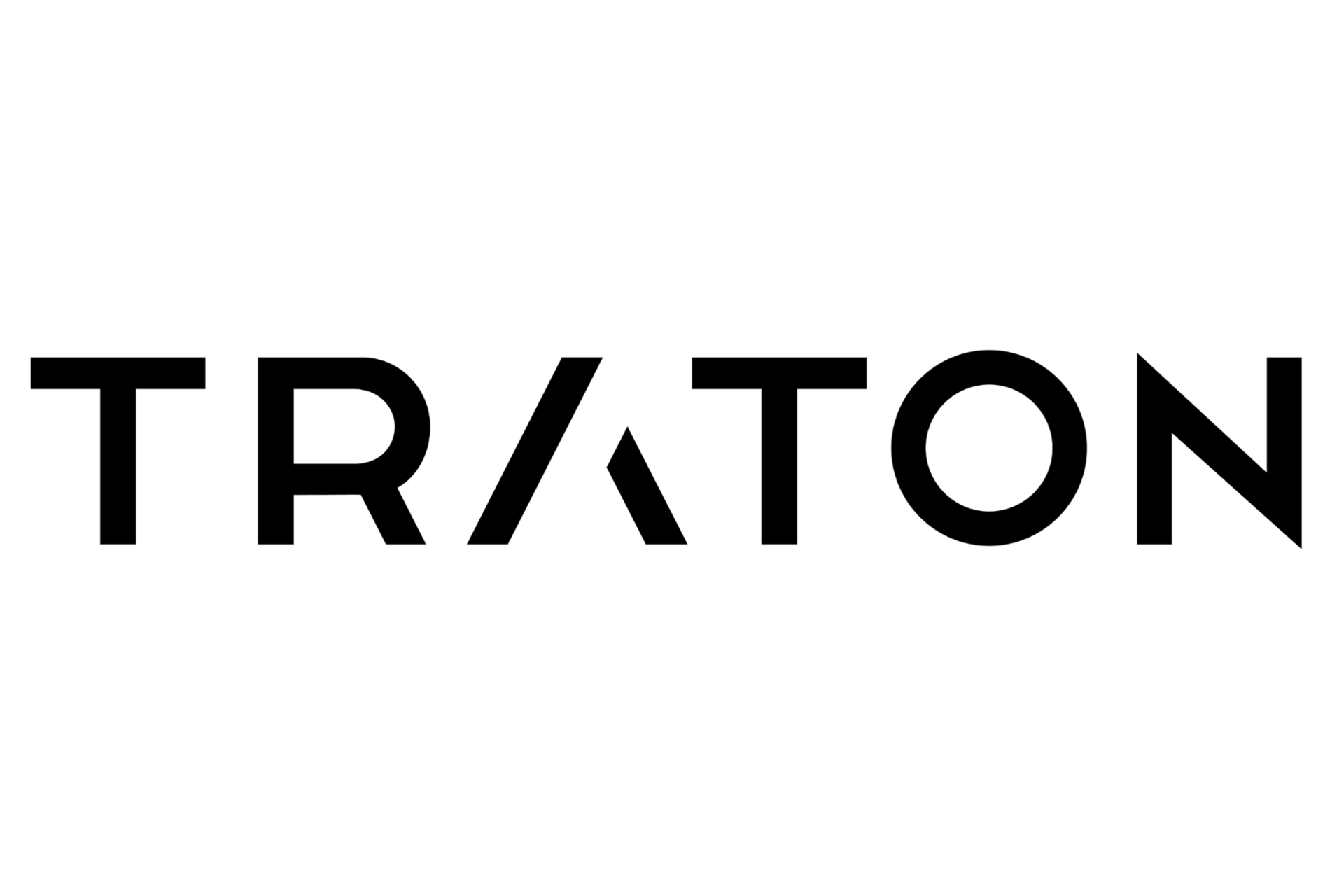
A subsidiary of Volkswagen Group, Traton is an industrial giant focused on commercial vehicles, encompassing well-known truck and bus brands such as Scania, MAN, and Volkswagen Caminhões e Ônibus. Headquartered in Munich, Germany, Traton has a strong presence in Europe, South America, and Asia, where it competes directly with global heavyweights like Daimler Truck, Volvo Group, and Paccar.
In line with the broader automotive industry’s push for sustainability, Traton has committed to electric and hydrogen-powered commercial vehicles, with the aim of offering a comprehensive portfolio of green solutions by 2030. Its E-Traton project integrates the development of fully electric trucks with a focus on energy efficiency, digitalization, and autonomous driving technology.
While facing challenges such as fluctuating demand, supply chain disruptions, and regulatory pressures, Traton remains a strong force in the commercial vehicle market, especially with the growing demand for transportation solutions that are both economically efficient and environmentally responsible.
FY2024 Revenue in USD billions – $51.13 Bilion
13. Bayer AG
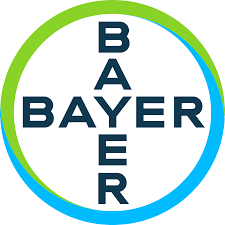
Bayer AG is a multinational pharmaceutical and life sciences company headquartered in Leverkusen, Germany. With operations spanning from healthcare and agriculture to material science, Bayer is known for its world-class products in pharmaceuticals, consumer health, and crop science.
The company’s Pharmaceuticals division focuses on prescription drugs, particularly in the fields of oncology, cardiology, and women’s health. Crop Science, which encompasses plant biotechnology and crop protection, has seen significant growth as the global food production sector strives to meet the demands of a growing population. Bayer is also a leader in digital farming technologies, applying data analytics and AI to optimize agricultural practices.
Bayer has faced significant challenges, including the litigation related to its acquisition of Monsanto and ongoing price pressures in the generics sector. Nevertheless, it remains a leader in innovation, with substantial investments in research and development, especially in the areas of gene therapy and precision medicine. Sustainability is a key component of its strategy, with the company focusing on reducing carbon emissions and improving biodiversity through its agricultural solutions.
FY2024 Revenue in USD billions – $50.15 Bilion
14. Munich RE (Münchener Rück)
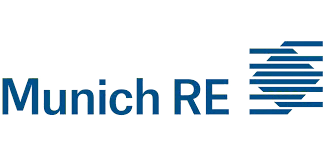
One of the world’s largest reinsurers, Munich RE has established itself as a key player in the global reinsurance market, providing coverage to insurance companies and offering risk management services. Headquartered in Munich, Germany, Munich RE also operates in primary insurance through its ERGO group, which provides health, life, and property insurance.
Munich RE's business model centers on diversification, which spans traditional insurance products, specialty risk solutions, and investments. The company has been expanding its focus on climate risk and cybersecurity, two areas that are becoming increasingly critical in the modern reinsurance landscape. Its Munich RE Digital Partners unit, launched in 2016, seeks to harness the potential of digital technologies and innovative partnerships to provide new insurance products and services.
Despite challenges posed by natural catastrophes, low-interest rates, and rising claims costs, Munich RE continues to maintain a robust financial position and remains committed to sustainability, focusing on reducing its carbon footprint and increasing its investments in green technologies.
FY2024 Revenue in USD billions – $45.52 Bilion
15. Porsche AG
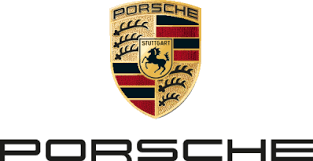
Known for its precision engineering, luxury, and performance, Porsche AG is one of the world’s most revered automotive brands. Headquartered in Stuttgart, Germany, Porsche has long been a symbol of high-performance sports cars, with its most iconic model being the Porsche 911. The company has expanded its portfolio in recent years to include electric vehicles, with the Taycan marking its entry into the EV market.
Despite its relatively small size compared to some of its automotive peers, Porsche’s commitment to high margins and superior craftsmanship has allowed it to remain highly profitable. The company has set ambitious targets to electrify its lineup, with plans to make over 80% of its vehicles electric by 2030. Additionally, Porsche has heavily invested in digitalization and autonomous driving technology, ensuring it stays at the forefront of innovation in luxury vehicles.
Although Porsche faces stiff competition from both traditional automotive manufacturers and emerging EV startups, its strong brand equity, technological prowess, and focus on sustainability position it well for the future.
FY2024 Revenue in USD billions – $43.08 Bilion
16. Continental AG

A global leader in the automotive industry, Continental AG is a key player in the design and manufacture of innovative automotive technologies, including tires, brake systems, and advanced driver-assistance systems (ADAS). Headquartered in Hanover, Germany, Continental is one of the largest suppliers to the automotive sector and operates in more than 60 countries worldwide.
The company is perhaps best known for its tire manufacturing, producing a wide range of tires for cars, trucks, and commercial vehicles. Continental’s tires are renowned for their durability, safety features, and performance. Beyond tires, Continental’s automotive solutions include infotainment systems, electric mobility technologies, and autonomous driving systems. The company is investing heavily in smart mobility, with a strong emphasis on electric vehicle components and advanced sensor technologies.
In recent years, Continental has faced increasing pressure to innovate in the rapidly changing automotive landscape, especially with the rise of electric vehicles (EVs) and autonomous driving technologies. The company has pivoted its strategy to focus on sustainability, digitalization, and developing solutions for a connected, electrified future. This includes efforts to reduce carbon emissions in its manufacturing processes and to push for greater efficiency in vehicle safety technologies.
Continental’s strong focus on R&D, alongside its robust portfolio of products, has allowed it to stay competitive in an industry undergoing significant transformation. Despite global supply chain challenges and semiconductor shortages, the company remains a dominant force in the automotive sector.
FY2024 Revenue in USD billions – $42.78 Bilion
17. Lufthansa Group

As Germany’s flagship airline and one of Europe’s largest aviation groups, Lufthansa is a symbol of the country's global connectivity and engineering excellence in air travel. Headquartered in Cologne, Lufthansa operates a broad network of passenger and cargo flights through its main brand, as well as subsidiaries such as Swiss International Air Lines, Austrian Airlines, Brussels Airlines, and Eurowings.
Lufthansa offers service to over 200 destinations worldwide and is a founding member of the Star Alliance, the world’s largest airline alliance. Its business model is diversified, encompassing passenger transport, air freight via Lufthansa Cargo, aircraft maintenance and repair services (Lufthansa Technik), and catering through LSG Sky Chefs. This integrated structure has helped the group weather turbulent times, including the COVID-19 pandemic and ongoing global economic uncertainty.
In recent years, Lufthansa has made sustainability and innovation central to its strategy. The airline has committed to cutting its net carbon emissions to zero by 2050, investing in more fuel-efficient aircraft like the Airbus A350 and Boeing 787, and developing sustainable aviation fuels. Additionally, it has embraced digitalization, offering improved customer service and optimized fleet management systems.
Despite intense competition from low-cost carriers and economic headwinds, Lufthansa remains a market leader in quality, service, and reliability. Its post-pandemic recovery has been robust, with strong demand for both business and leisure travel driving a resurgence in revenue and operations.
FY2024 Revenue in USD billions – $40.53 Bilion
18. Siemens Energy AG
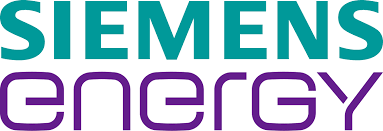
A spin-off from Siemens AG, Siemens Energy has quickly become a key player in the global energy transition. Headquartered in Munich, the company provides energy technology solutions across the entire energy value chain—from generation and transmission to storage and industrial applications.
Its portfolio includes gas and steam turbines, electrical grid solutions, hydrogen systems, and renewable energy technologies. Siemens Energy also holds a majority stake in Siemens Gamesa Renewable Energy, a leader in wind power—both offshore and onshore.
Despite recent setbacks, including operational losses and restructuring challenges within Siemens Gamesa, Siemens Energy remains committed to driving forward decarbonization. It is investing heavily in green hydrogen, energy storage, and grid modernization projects, particularly in Europe and North America.
With energy security, sustainability, and electrification shaping global policy and infrastructure development, Siemens Energy is well-positioned to be a long-term beneficiary of the accelerating green energy transition.
FY2024 Revenue in USD billions – $38.55 Bilion
19. Thyssenkrupp AG
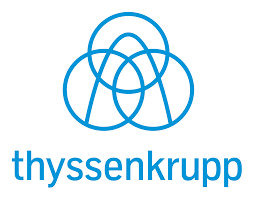
One of Germany’s oldest industrial conglomerates, Thyssenkrupp has a legacy that spans steel production, engineering, and industrial solutions. Based in Essen, the company has undergone significant transformation over the past decade, moving away from being a traditional steel giant to a diversified industrial and technology group.
Today, Thyssenkrupp operates in sectors including automotive components, plant engineering, material services, marine systems, and green steel technologies. The company is investing in decarbonized steel production, using hydrogen to reduce emissions in its blast furnaces as part of its "tkH2Steel" initiative.
The group has also explored spinning off parts of its business and partnering with other industrial players to streamline operations and focus on innovation-driven growth. Despite ongoing structural reforms and cost pressures, Thyssenkrupp’s forward-looking stance on sustainable materials and advanced manufacturing gives it resilience in an evolving industrial landscape.
FY2024 Revenue in USD billions – $37.41 Bilion
20. EnBW Energie Baden-Württemberg AG

EnBW is one of Germany’s largest energy supply companies, serving millions of customers with electricity, gas, and related services. Headquartered in Karlsruhe, EnBW is a leader in renewable energy, particularly in onshore and offshore wind, solar power, and grid infrastructure.
In recent years, EnBW has accelerated its shift from conventional energy sources to renewables, aiming to make half of its generation capacity climate-neutral by 2025. The company is heavily involved in energy storage projects and digital smart grid solutions, helping to stabilize power supply and integrate intermittent renewables into the energy system.
EnBW has also launched innovative customer-facing services such as EV charging stations, smart home technology, and decentralized energy solutions, making it a significant contributor to Germany’s energy transition, known as the Energiewende.
FY2024 Revenue in USD billions – $37.19 Bilion
21. SAP SE
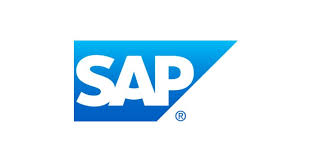
As one of the world’s largest enterprise software companies, SAP is a global leader in digital transformation. Headquartered in Walldorf, Germany, SAP serves over 400,000 customers in more than 180 countries, providing enterprise resource planning (ERP), cloud computing, and data analytics solutions.
SAP's core product suite, SAP S/4HANA, offers integrated applications that allow companies to manage operations, finance, logistics, and HR in real-time. Over the past decade, SAP has made major strides in cloud adoption, offering its software-as-a-service through the SAP Business Technology Platform and acquiring companies like Qualtrics and Ariba to enhance its digital ecosystem.
SAP plays a crucial role in enabling digital supply chains, sustainability tracking, and AI-driven decision-making in industries ranging from manufacturing and retail to healthcare and finance. Its commitment to innovation and sustainability—such as tools for ESG compliance and carbon accounting—further strengthens its relevance in a rapidly digitizing economy.
FY2024 Revenue in USD billions – $36.78 Bilion
22. Hochtief AG

Hochtief is one of Germany’s leading construction and engineering firms, known for its involvement in large-scale infrastructure projects both domestically and internationally. A subsidiary of Spanish group ACS, Hochtief has a strong presence in markets such as North America (via Turner Construction) and Australia (through CIMIC Group).
The company’s portfolio spans transport infrastructure, energy systems, commercial real estate, and public-private partnership (PPP) projects. Notable projects include airports, tunnels, bridges, and highways. Hochtief emphasizes digital construction tools, modular building, and sustainable practices, including the use of green building materials and carbon-neutral methods.
Despite the cyclical nature of construction, Hochtief’s global reach and expertise in managing complex, long-term projects give it stability and growth potential, particularly as governments worldwide increase infrastructure spending in response to climate change and urbanization.
FY2024 Revenue in USD billions – $35.84 Bilion
23. Metro AG
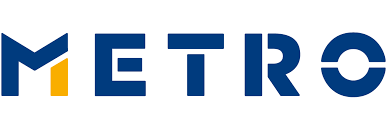
Metro AG is a leading international food wholesaler and cash-and-carry company, serving over 16 million customers in the hospitality, retail, and catering sectors. Headquartered in Düsseldorf, Metro operates in more than 30 countries, offering a wide range of food and non-food products.
The company’s core business revolves around B2B wholesale, supplying hotels, restaurants, and independent retailers with bulk goods and specialized logistics services. Metro has increasingly focused on digital ordering platforms and supply chain optimization through its METRO MARKETS e-commerce platform.
Metro is also known for its sustainability efforts, promoting food waste reduction, sustainable sourcing, and energy-efficient logistics. While the wholesale sector remains highly competitive, Metro’s strong customer base, data-driven operations, and tailored services provide it with a defensible market position.
FY2024 Revenue in USD billions – $33.90 Bilion
24. Deutsche Bank AG

Germany’s largest banking institution, Deutsche Bank plays a pivotal role in global finance. Headquartered in Frankfurt, the bank provides a comprehensive range of financial services across investment banking, corporate banking, asset management, and private banking.
Deutsche Bank has undergone significant restructuring in recent years, aiming to regain stability and profitability after years of volatility. The bank has shifted its focus toward core business segments—particularly corporate banking and wealth management—while scaling back risk-heavy investment banking operations.
A central part of its turnaround strategy includes digitization, cost reduction, and sustainability finance. The bank is investing in green bonds and ESG-compliant financial products, aligning with broader global efforts toward climate-conscious investing.
Despite facing reputational challenges in the past, Deutsche Bank remains a crucial pillar of Germany’s financial system and a major international player, with strong positions in Europe, the Americas, and Asia.
FY2024 Revenue in USD billions – $32.37 Bilion
25. Talanx AG

Talanx is a major German insurance group headquartered in Hanover, known for its broad portfolio covering industrial, retail, and reinsurance sectors. Operating through well-known brands such as HDI, Hannover Re, and Ampega, Talanx is one of the top insurers in Germany and a key player in global reinsurance markets.
The group serves both private individuals and large corporations, offering life, health, property, and casualty insurance. Talanx stands out for its diversified business model and conservative risk management, which have provided resilience amid market volatility and rising natural catastrophe claims.
Talanx is also actively integrating digital solutions and AI-based underwriting to enhance customer service and operational efficiency. Moreover, the group is committed to sustainable finance, incorporating ESG factors into its investment decisions and underwriting policies.
As the insurance industry faces rising climate-related risks and changing customer expectations, Talanx is adapting through innovation and forward-thinking strategies.
FY2024 Revenue in USD billions – $29.01 Bilion
26. RWE AG

RWE is one of Europe’s leading electricity producers and a key driver of Germany’s energy transition. Historically rooted in coal and nuclear power, RWE has rapidly restructured its portfolio to become a renewable energy powerhouse, particularly in wind and solar power.
Based in Essen, RWE has divested much of its conventional generation capacity and has reinvested in clean energy projects, becoming one of the largest operators of offshore wind farms in Europe. The company plans to be climate-neutral by 2040 and is investing billions in green hydrogen, battery storage, and international renewable energy development.
RWE has also been instrumental in building cross-border energy infrastructure, supporting European energy security and the phasing out of fossil fuels. With a robust pipeline of renewable projects and strategic partnerships, RWE is positioned to lead the charge toward a decarbonized future.
FY2024 Revenue in USD billions – $25.98 Bilion
27. TUI AG
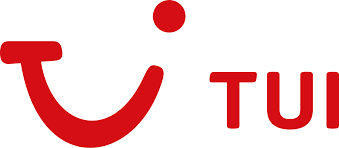
TUI Group is the world’s leading tourism company, headquartered in Hanover, Germany. Operating across tour operations, hotels, airlines, and cruise lines, TUI offers fully integrated travel experiences to millions of customers globally.
The company owns or manages over 400 hotels, five airlines with around 130 aircraft, and 16 cruise ships. TUI was significantly impacted by the COVID-19 pandemic, but it has since rebounded, supported by rising demand for leisure travel and a strategic realignment toward digital platforms and sustainable tourism.
TUI continues to invest in carbon reduction, aiming to make its fleet and hotel operations more eco-efficient. Its shift toward dynamic packaging and flexible travel options, supported by AI and mobile tools, has also helped it adapt to changing consumer behavior.
With tourism demand resurging across Europe and key long-haul markets, TUI is regaining its standing as a cornerstone of the global travel industry.
FY2024 Revenue in USD billions – $25.74 Bilion
28. Adidas AG

A global icon in sportswear and lifestyle apparel, Adidas is headquartered in Herzogenaurach, Germany. The company designs and markets footwear, apparel, and accessories under the Adidas and Reebok brands, competing directly with Nike and Puma on the world stage.
Adidas has focused heavily on innovation, launching products with recycled materials, biodegradable components, and carbon-neutral goals. The brand’s collaborations with high-profile athletes, celebrities, and designers—such as Beyoncé, Pharrell Williams, and Stella McCartney—have helped drive global demand.
While it faced recent challenges in China and from the terminated partnership with Kanye West (Yeezy), Adidas is refocusing on core performance lines, direct-to-consumer sales, and digital commerce expansion. Its global sustainability initiative, "End Plastic Waste," remains a central part of its identity.
Adidas continues to blend sport, fashion, and environmental consciousness, making it a key brand in the global consumer market.
FY2024 Revenue in USD billions – $25.53 Bilion
29. Ceconomy AG
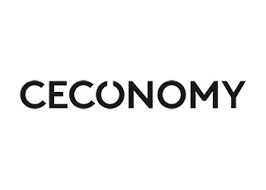
Ceconomy is Germany’s largest consumer electronics retail group and the parent company of MediaMarkt and Saturn, two well-known chains across Europe. Headquartered in Düsseldorf, Ceconomy operates in over a dozen countries, selling electronics, household appliances, and digital services.
With the rise of e-commerce, Ceconomy has worked to integrate omnichannel retail strategies, combining physical stores with online platforms to provide a seamless shopping experience. It also focuses on after-sales services, such as tech support, installation, and warranties, to boost customer loyalty.
While the consumer electronics market is highly competitive and vulnerable to economic downturns, Ceconomy’s brand recognition, extensive store network, and shift toward digital transformation have helped it remain a major retail force.
FY2024 Revenue in USD billions – $24.72 Bilion
30. Siemens Healthineers AG

A leader in medical technology and diagnostics, Siemens Healthineers is a key subsidiary of Siemens AG, operating independently since its IPO. Headquartered in Erlangen, Germany, the company provides solutions in imaging, diagnostics, cancer therapy, and digital health services.
Known for its advanced MRI, CT, and X-ray systems, as well as laboratory diagnostics, Siemens Healthineers plays a critical role in supporting hospitals, clinics, and labs worldwide. Its 2020 acquisition of Varian, a U.S.-based oncology solutions provider, expanded its reach into cancer treatment and precision medicine.
The company continues to develop AI-powered diagnostic tools, remote monitoring systems, and robotic-assisted surgery technologies, keeping it at the forefront of global healthcare innovation. Siemens Healthineers is a key player in the digitization and personalization of medicine.
FY2024 Revenue in USD billions – $24.45 Bilion
31. BayWa AG

BayWa is a diversified international group based in Munich, specializing in agriculture, energy, and construction materials. It serves as a major supplier of agricultural products and services across Europe, and has also become a leading force in renewable energy, particularly solar and wind.
Through its subsidiary BayWa r.e., the company develops, builds, and operates renewable energy projects around the world, while also trading agricultural commodities, fertilizers, and equipment. BayWa also supports rural infrastructure and smart farming technologies, helping farmers transition to more sustainable practices.
The company is deeply embedded in Germany’s energy transformation, contributing to decentralized energy solutions and investing in sustainable innovations across all of its business units.
FY2024 Revenue in USD billions – $24.24 Bilion
32. Fresenius SE & Co. KGaA

Fresenius is a global healthcare group based in Bad Homburg, Germany, known for its focus on hospital operations, dialysis services, generic pharmaceuticals, and medical technology. Through its subsidiaries—Fresenius Medical Care, Fresenius Kabi, and Fresenius Helios—the company covers a wide range of medical services and products.
Fresenius is the world’s largest provider of dialysis products and services, treating millions of patients with chronic kidney failure. It also operates a vast network of private hospitals, particularly in Germany and Spain. Fresenius Kabi, another key division, provides IV drugs, clinical nutrition, and infusion therapy solutions worldwide.
Despite regulatory and reimbursement pressures in the U.S. and Europe, Fresenius remains committed to expanding access to healthcare, improving efficiency through digitalization, and advancing biosimilar drug development.
FY2024 Revenue in USD billions – $23.86 Bilion
33. Merck KGaA
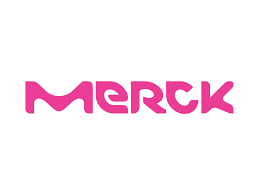
Not to be confused with the U.S.-based Merck & Co., Merck KGaA is a leading German science and technology company headquartered in Darmstadt. Operating across healthcare, life sciences, and performance materials, Merck has built a strong reputation for innovation in biopharmaceuticals, laboratory equipment, and semiconductor solutions.
In healthcare, Merck focuses on oncology, neurology, and fertility treatments. Its Life Science arm, under the MilliporeSigma brand, supports laboratories and biotech firms worldwide with reagents and research tools. Meanwhile, the Electronics division is essential to chip and display production, supplying advanced materials to global tech manufacturers.
With its heavy investment in R&D and sustainability, Merck is helping shape future industries from personalized medicine to nanotechnology. The company aims to be climate-neutral by 2040 and continues to grow through strategic acquisitions and innovation partnerships.
FY2024 Revenue in USD billions – $22.78 Bilion
34. Henkel AG & Co. KGaA
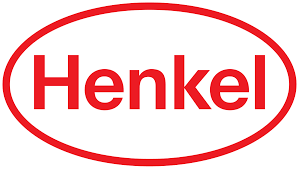
Headquartered in Düsseldorf, Henkel is a globally recognized name in consumer goods and industrial adhesives. It operates in two major segments: Adhesive Technologies, which serves sectors from automotive to electronics, and Consumer Brands, which includes household staples like Persil, Schwarzkopf, and Loctite.
Henkel is a global market leader in adhesives and sealants and a significant player in the personal care and home care sectors. The company has placed strong emphasis on sustainability, aiming to make all its packaging recyclable or reusable and to reduce its carbon footprint across production sites.
Facing stiff competition from other consumer giants, Henkel continues to focus on digitalization, supply chain modernization, and emerging market expansion to maintain its global presence and relevance.
FY2024 Revenue in USD billions – $22.51 Bilion
35. Heidelberg Materials AG (formerly HeidelbergCement)

Now rebranded as Heidelberg Materials, this company is one of the world’s largest producers of building materials, including cement, aggregates, and ready-mixed concrete. Headquartered in Heidelberg, it plays a critical role in global infrastructure development, with operations in over 50 countries.
As construction emissions become a focus of environmental concern, Heidelberg is leading efforts to decarbonize cement production, which is traditionally one of the most carbon-intensive industries. The company is investing in carbon capture technologies, low-carbon cements, and circular economy solutions.
Heidelberg Materials is also involved in smart construction and digital building platforms, which help reduce waste and improve project efficiency. Despite the cyclical nature of the construction market, its sustainability roadmap positions it as a forward-looking player in the global push toward greener infrastructure.
FY2024 Revenue in USD billions – $21.78 Bilion
